As Wilmington area businesses eye possible recession, how tourism could ease concerns
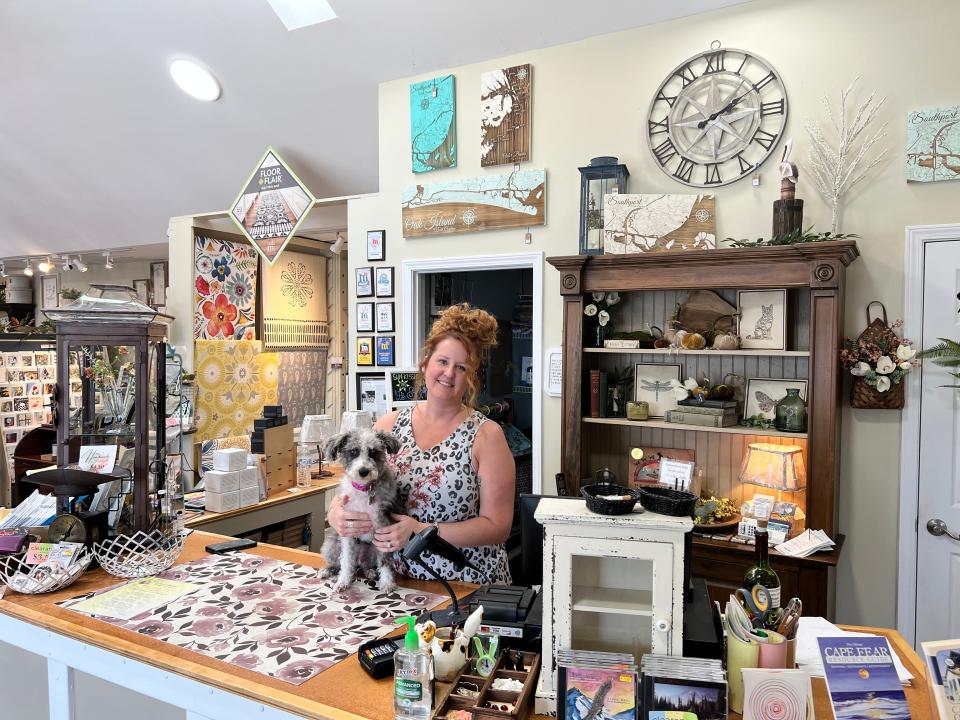
It’s a Thursday in late July, and there’s talk of a recession. But one would never know that looking around downtown Southport.
The streets are lined with cars, and people are walking around the city, stopping in stores, getting ice cream and hoping to catch a glimpse of filming that’s happening around town.
In Cattail Cottage, Pamela Sexton is busy moving a display rack, taking phone orders and greeting customers. Though there was a little slump after the Fourth of July holiday, business has picked back up.
But Sexton knows hard times happen; she’s seen it.
Economists and business owners say the recent pandemic-related boom in tourism and discretionary spending make it difficult to gauge how the recession might impact southeastern North Carolina. But they do know the economy is fickle and making predictions can be dangerous, even for those who have been in the business awhile.
Sexton grew up in the retail industry. Her parents owned a store in Pennsylvania, and it was her dream to have her own store someday. That day came when she opened Cattail Cottage in August 2007. Just a few months later, the country was dealing with a housing market crash and a years-long recession.
“It was basically just me running things at that point,” she said.
More from Southport: Indigo a no-go? Southport planning board denies development, but path to approval remains
With a brand-new business, it was a difficult time, and Sexton had to adjust. But she survived and kept her business going. It thrives, and in 2017, Cattail Cottage celebrated its 10th anniversary. But the hard times weren’t over.
Fast forward to the spring of 2020. Like many businesses across the state, Sexton was forced to close her doors for months.
“It was scary,” she said. “I had no income.”
By that time, her business had grown significantly, and the shutdown was affecting more than just her.
“My employees had no income,” she said. “It was definitely a scary time.”
Again, Sexton made it through by “taking it day-by-day.”
Now the country could face another recession, and since discretionary spending is often the first thing people cut, owners of retail shops like Sexton’s are not sure what the next weeks and months will bring.
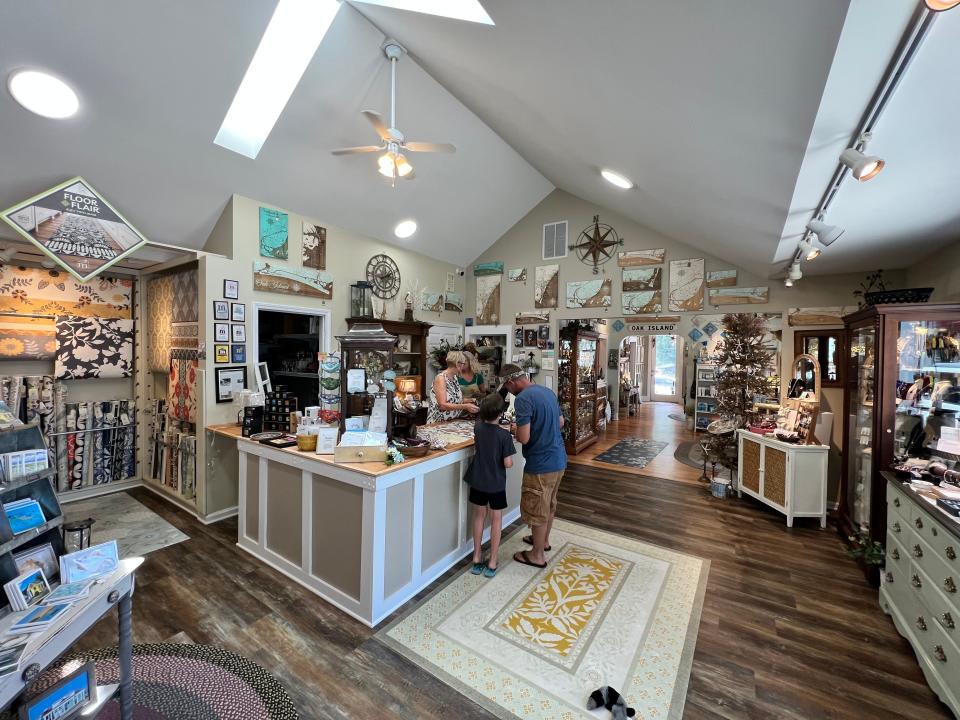
What is a recession?
Dr. Adam Jones, department chair of economics and finance at the University of North Carolina Wilmington, explained a recession is a period of slowing economic output.
“In simple terms, that means that we’re producing more or less than we did in the past,” Jones said. “And that can be for a few reasons.”
Those reasons range from fewer people working to produce goods, or those who are working aren’t doing so at the same intensity. A climbing unemployment rate usually follows the slow-down in output.
Jones said based on the recent numbers, he wouldn’t be surprised to see a declaration of a recession. But that might not be right away.
“The old rule of thumb used to be that two quarters of declining GDP is a recession,” he said. “But over time, as data availability has improved, a recession is now officially painted by the National Bureau of Economic Research, and they do it on a monthly basis."
More: Help not just wanted, but needed, to meet customer demand at Wilmington-area restaurants
He explained experts try to identify where the economy peaked and then began to decline, and that point will be declared the start of the recession. But Jones said the country may have been in a recession for a few months before the declaration is made.
“They tend to do it hindsight,” he said.
One area where people might already see a bit of financial strain is through increasing costs and rising interest rates, which Jones said are often related to rising fuel costs and the expectations of “what the future looks like.”
“Prices go up, and oh, my God, prices are rising, and we start expecting things are going to be more expensive,” he said. “So, we start cutting back on what we’re buying and trying to raise the price of what we sell.”
Now that gas prices are coming down a bit, he said that could help things level out, bringing down inflation and keep interest rates steady.
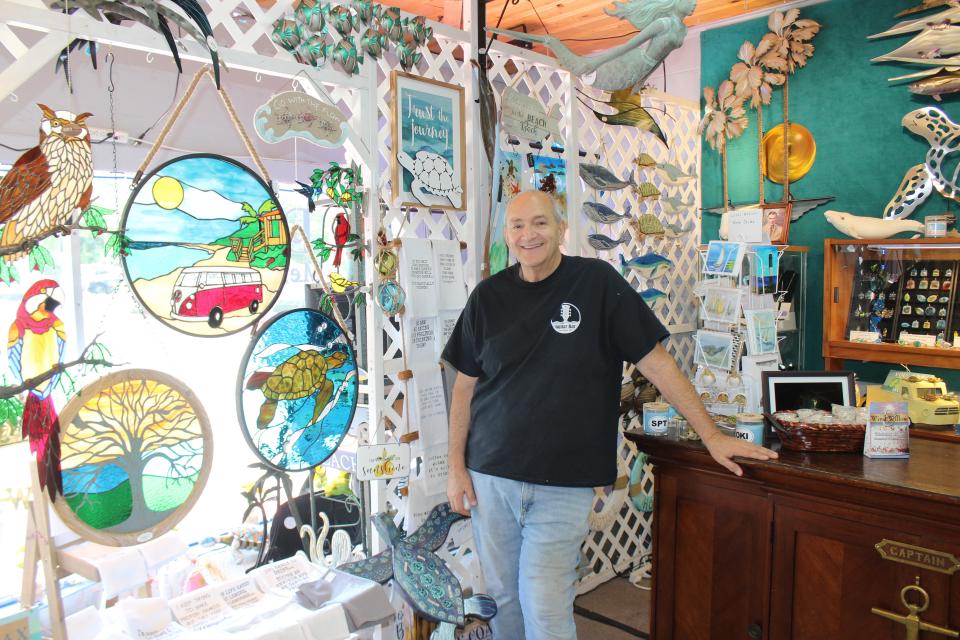
What could a recession look like?
Predicting what a recession will look like or how long it will last can be tricky, and Jones recalled economists are often wrong.
“We missed The Great Recession,” he said. “We said, ‘This isn’t going to be that bad,’ and it turned out to be bad.”
But he believes the country has learned a few things since then — especially in the housing market.
“Right now, we don’t have nearly as much of the low and medium standards as we did back then,” he said. “I remember before The Great Recession, you’d drive past a subdivision and there would be a sign out — 'Today! Financing 110 percent,’ and you’re like holy cow! They’re going to loan you more money than the house is worth!”
He said this meant people were starting off upside down in their mortgages and quickly found themselves in financial trouble, and banks weren’t in a strong position. Overall, Jones thinks the country is in a better place financially, and if there are losses, he doesn’t see them being like the “meltdown” of 2008.
More from Southport: Apartments, retail and restaurant proposed for downtown Southport
He said people need to be focused less on what is happening nationally and more attentive to what happens locally with people’s discretionary spending and travel.
“The local economy has really moved,” he said.
A good indicator, he said, is room occupancy tax numbers in southeastern North Carolina, which show dramatic increases over pre-pandemic levels.
“We’ve had a huge boom in people bringing their discretionary dollars to southeastern North Carolina,” he said. “What happens as things continue to trend back towards normal?”
Jones pointed out that as people begin to feel more comfortable with air and international travel, it could have a significant impact on local tourism.
“And the other one is: what happens with the work from home or remote work situation?” he asked. “As people get called back to the office, do they move back to wherever they came from, or are they looking for jobs or trying to create their own opportunities here in Wilmington?”
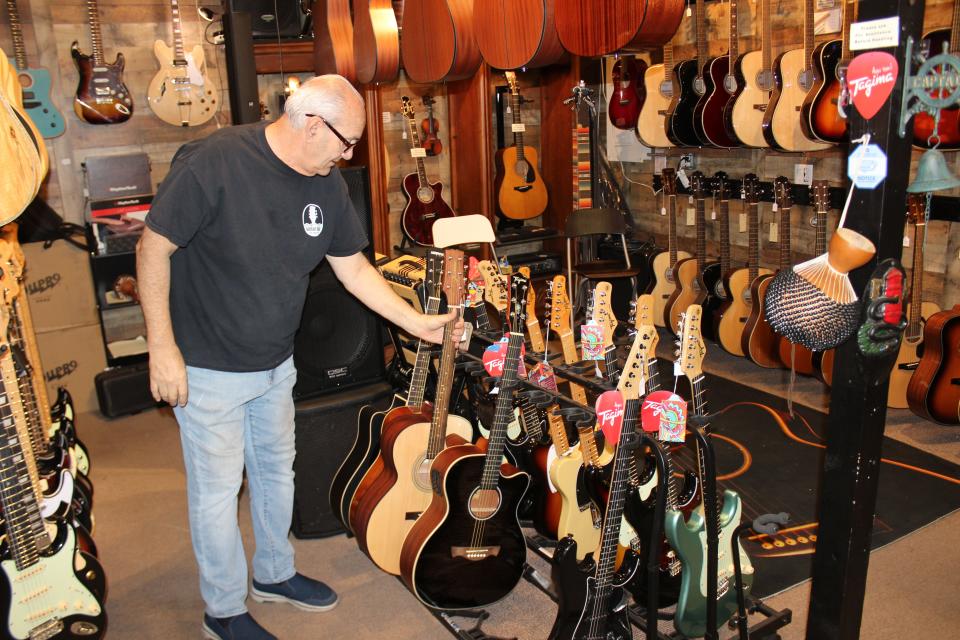
Impact on local businesses
Right now, several local business owners say they are still enjoying a busy tourist season and the boom from the pandemic.
Jamie Shepard, who opened Little Locals Clothing Co. in the Cotton Exchange on July 11, didn't know how business would go because they opened up in the middle of the season. She explained she and her husband initially were conservative with their estimates.
"We tried not to have expectations that were too high," she said. "But so far, we've done better than we thought we were going to do."

As new business owners, Shepard said they are concerned about the impact of a recession, and to help them prepare for the slower times, they are working on a website to increase their customer base.
Dennis and Jackie Del Prete have also watched as their sales exceeded their expectations. The couple purchased Dunes Mercantile on Oak Island three-and-a-half years ago — right before the pandemic. They converted the former consignment shop into a gift shop, featuring high-end artwork, locally-made items and a guitar bar. Though their business is new, Dennis Del Prete explained they have experienced nothing but growth year after year.
“Every year, we are exceeding the previous year, and our expectations are being met —and actually better,” he said.
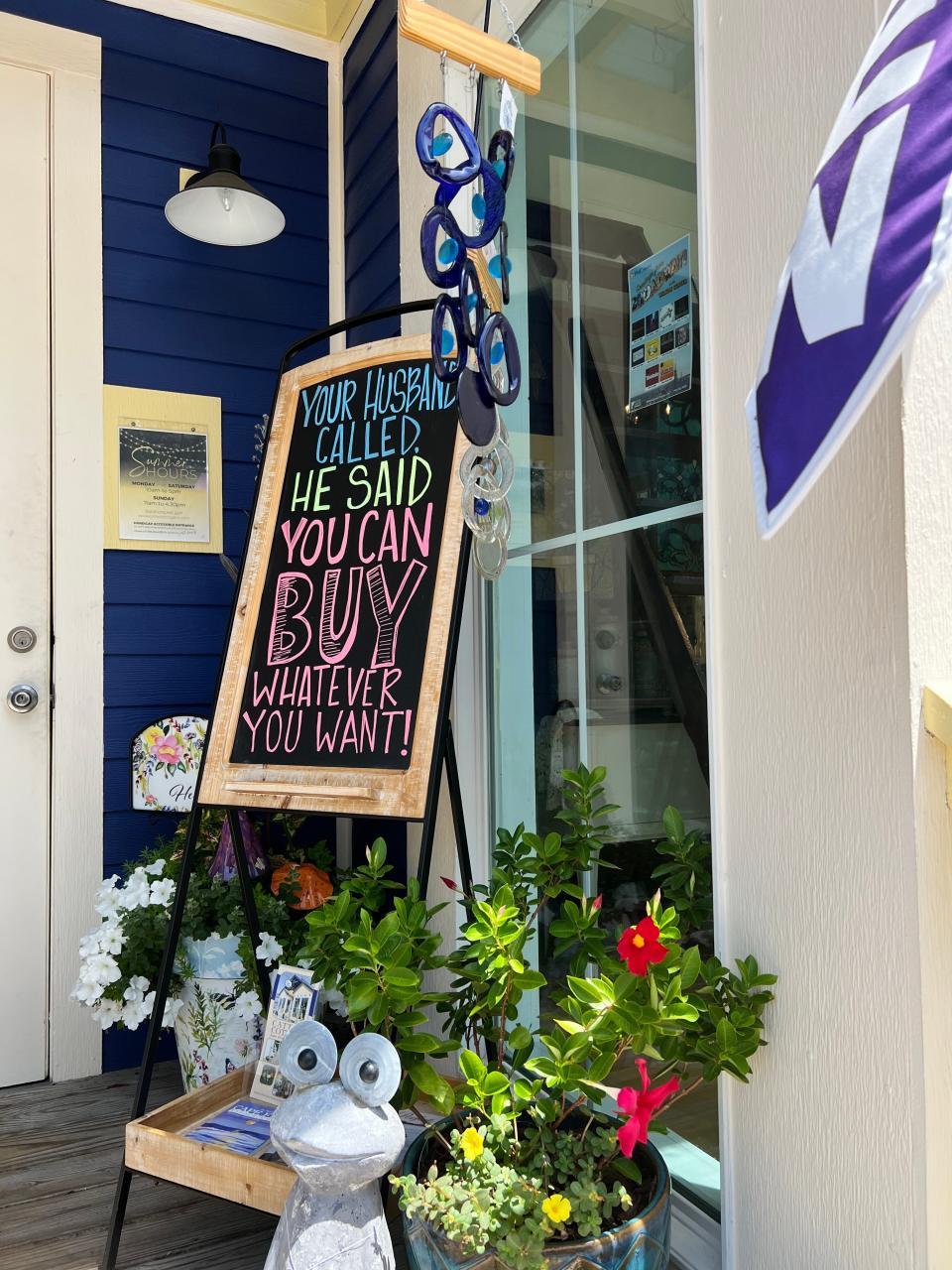
He thinks much of that has to do with the influx of visitors who often tell him how much they “love the quaintness of this area.”
“This hidden gem, which is slowly becoming not hidden anymore, is really more popular than a crowded beach,” he said.
When it comes to a recession, Dennis and Jackie say they believe tourism will continue to provide a steady stream of income during the peak season, as well as their local customers who are often “retired and financially-set.”
Sexton agrees the area may experience a bit of insulation from the financial impact.
“Maybe we’re not far enough into it to know yet how it’s going to affect business,” Sexton said. “Being a coastal town and tourist area, they always tend to in my opinion fare better than places that are not tourist-driven. Maybe we won’t feel it quite as much, but it’s hard to say.”
But after nearly 15 years in business, Sexton knows that it’s about anticipating what challenges may be around the corner.
“I don’t think anything about retail anymore is very consistent,” she said. “It hasn’t been since 2008. It’s either feast or famine, and when you’re in the famine, you’ve got to make adjustments, and when you’re feasting, you’ve got to make a plan for when you’re in the famine.
“If I made it through the crash and I made it though COVID, I’m going to make it though a recession. I don’t have a choice; it’s my livelihood.”
This article originally appeared on Wilmington StarNews: Looming recession not impacting tourism, spending in Wilmington area

